How to start cycling to school with kids
Congratulations on deciding to cycle your child to school! You’re joining an ever growing group of parents who are making the switch to a healthier, greener and more enjoyable way to travel each day.
While some people are happy to just take the bike out the shed and get going, others need a bit more time to plan, figure out how they’re going to do it, and equip themselves with the know-how to make the school run as stress-free as possible. If this is you, you’ve come to the right place.
If you’re feeling nervous about your first morning commute, please don’t worry. We've been there and know how you feel. Going from what you know to something new is always a bit difficult, but we’re here to make the change as stress-free as possible.
In this article we’ve outlined everything you need to know to get started doing the school run by bike.
If you’re looking for a comprehensive step-by-step guide, download our free ‘Cycle to School’ guide.
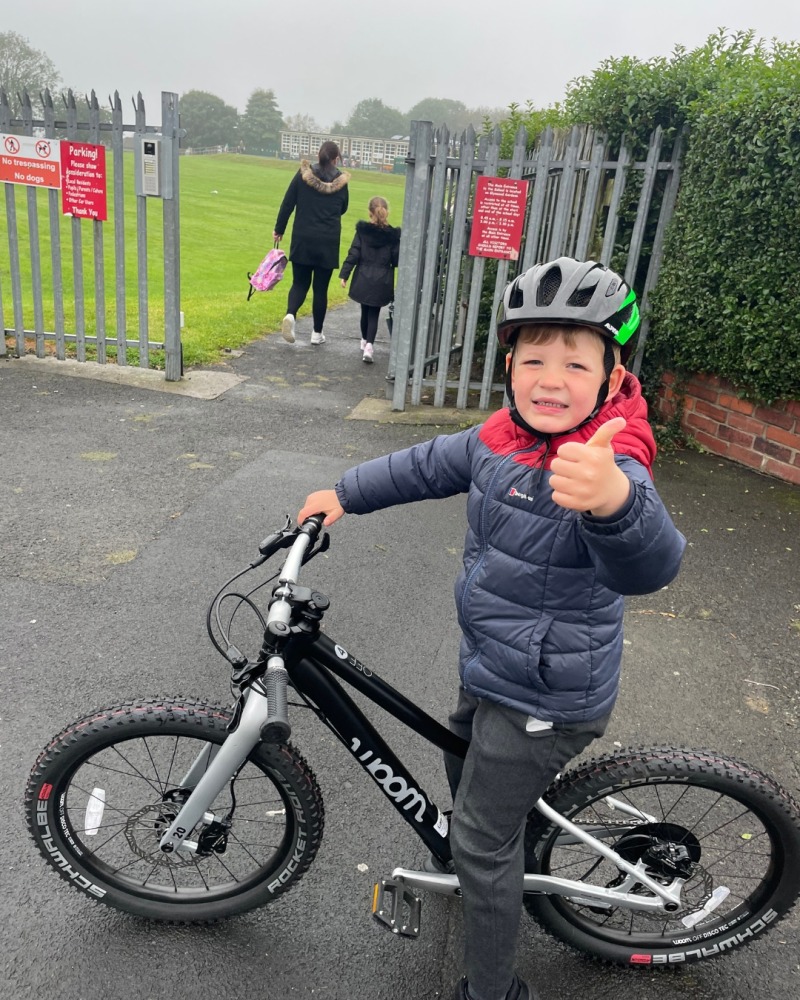
Cycle Sprog is a reader-supported website. When you buy through links on this page we may earn an affiliate commission.
Why you should cycle to school with your kids
Before we get started with the practical advice, here are some of the many reasons why you should consider cycling to school with your kids.
If you know with 100% certainty that this is for you, then feel free to skip this section. But if you’re still a little on the fence, then it’s important to know your ‘why’, because on the cold and dark mornings in winter when you’re not feeling well, and you need to motivate yourself to get going, this is what will get you out of the door on your bike every time.
Here are some of the key benefits to doing the school run by bike:
- Saving money: the cost of living keeps going up, along with the price of petrol and maintaining the car (or two cars, in the case of many households). Doing the school run by bike can be a great way to use your car less and save money on petrol.
- Fresh air: if you live in a built-up area, then getting out of the car and choosing active travel will help reduce the amount of air pollution in your area. It also opens up traffic-free routes to you that are much nicer than the busy roads you’re crawling along four times a day.
- Exercise: do you wish your child would get off their screen and go outside more? Cycling to school together is the perfect way to do that. It not only gets you all outside in nature, but helps contribute to a more active and healthy lifestyle.
- Save time: If you spend a lot of the school run crawling through traffic jams, you’ll be pleased to know that cycling to school will save you a lot of time. When you’re on a bike you can skip the gridlocked main roads and use smaller back roads and traffic-free paths to cut down your journey.
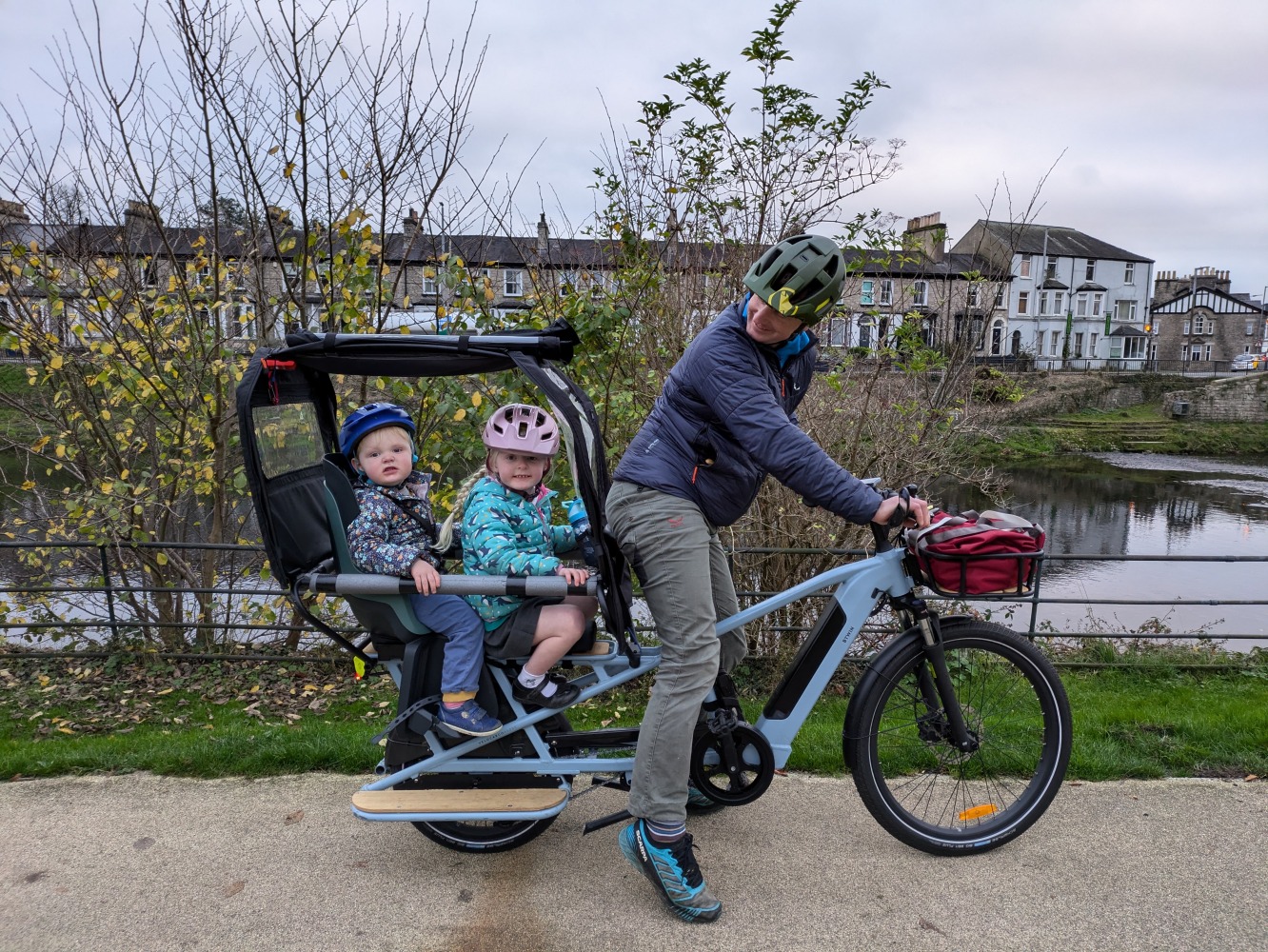
What you’ll need
There are three main things you need in order to start cycling your child to school:
- A bike for you to ride
- A way of transporting your child – either on your bike or their own
- A safe route to/from school
Decide on your bike to school set up
Do you know how you’re going to get to school yet? Will you carry your child(ren) on your bike or are they going to cycle on their own bikes?
This will depend on a number of factors, most importantly the age of your children, the route to school, and the equipment or budget available to you.
If your children can cycle on their own bikes, and the route is suitable for them to cycle with you, great! This is the ideal setup and will give them an energetic start to the day. If they need new bikes, check out our guide to the best kids’ bikes.
And don’t forget your own bike! If you’re also in the market for that, then we’ve got some advice on what to look for in an adult bike.
If your children are not old enough to cycle on their own bikes, check out our guidance on how to carry a child on your bike.
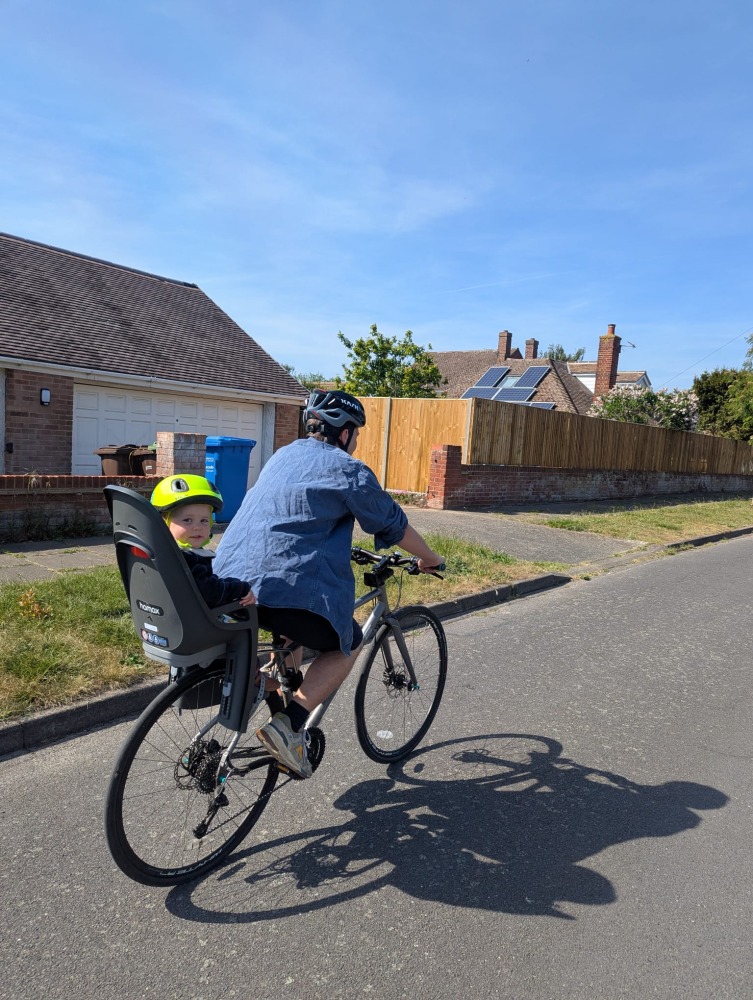
The best ways to transport your kids by bike are:
- Front bike seats – for babies and toddlers – good for young children and parents with longer arms. Here’s our guide to the best front bike seats for toddlers and young children and the best front bike seats for older kids.
- Rear bike seats – for babies to 5 years old – good for toddlers and slightly older kids, so long as you don’t want to wear a rucksack. Check out our list of the best rear bike seats for toddlers and young children and best rear bike seats for older kids.
- Trailers – for babies to around 6 years old – cheapest way of carrying up to two kids or lots of ‘stuff’. Offers passengers protection from the elements. Take a look at the best kids’ bike trailers we recommend.
- Cargo bikes – for babies to teens – can carry larger families or more ‘stuff’, with options for e-assist and weather protection for the passengers. To choose the right one for your needs, these are the best cargo bikes for families.
- Tagalongs – for 4-9 year-olds – a single wheel and saddle that attaches behind your bike. For a full breakdown of options, read our list of the best tagalong bikes.
The size of your child and your budget will determine which option you choose.
It's not unusual for families to start out with one option and then upgrade when they realise how much money and time they're saving, and sort out what works for their particular usage needs.
Bike seats or a trailer are the least expensive options, especially if you’ve already got a bike.
Here’s our guide to how to pull a child’s bike behind your bike.
For older children who can pedal, you need to consider whether they’re old enough to ride on the roads.
It’s useful to remember that good cycling infrastructure should be designed for a competent 12 year-old cyclist to cycle alone.
Even in Holland (where cycling rules!) most lower and middle primary age children are ridden to school, rather than riding alone.
This means you should set your expectations about how much carrying or pulling you'll be doing, and how much your child should be able to do themselves.
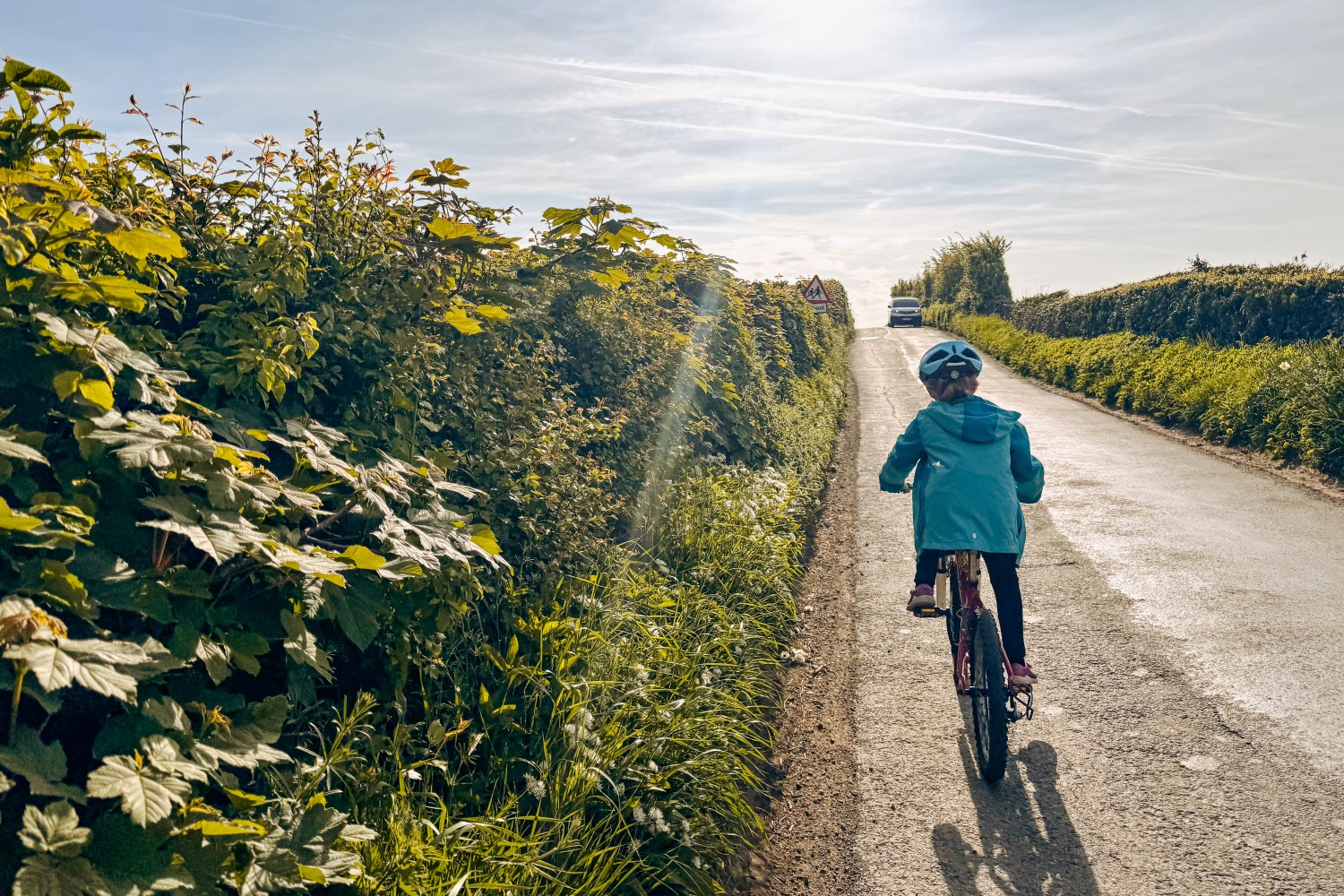
Before you start take a moment to GRAB YOUR FREE KIDS BIKE BUYING GUIDE to help you with all the information you need to find the perfect bike for your child.
Finding a safe route to cycle to school
It’s very important to plan your route to school carefully, by choosing a safe route depending on your children’s ability, or your own, if you are carrying them on your bike.
Sadly, it’s a postcode lottery as to whether you have a safe route to school. Some places have wonderful cycling infrastructures, others don’t.
It’s worth remembering that you may not need to cycle the route you currently drive, there could be other options by bike.
Take a look at Google Maps, speak to people you know who cycle in your area, and actually get out exploring. Are there side roads or cut-throughs that you never see because you’re in the car all the time?
In our free ‘Cycle to School’ guide we go through in a lot of detail how to plan your route and practice riding it before your first school run.
Make sure you test the route with your child on a weekend or holiday, so there’s no rush to get to school on time. You can time how long it takes and adjust your morning routine accordingly.
If you really don’t have a safe route our guide also tells you how to notify the most appropriate local official or an elected representative.
It’s important they know that you’re trying to cycle to school, but can’t. Encourage others at your school or in your neighbourhood to do the same and things may change.
If you are astonished by the lack of safe routes to your school, or if there’s a dangerous crossing along the way, don’t hesitate to contact your local councillors.
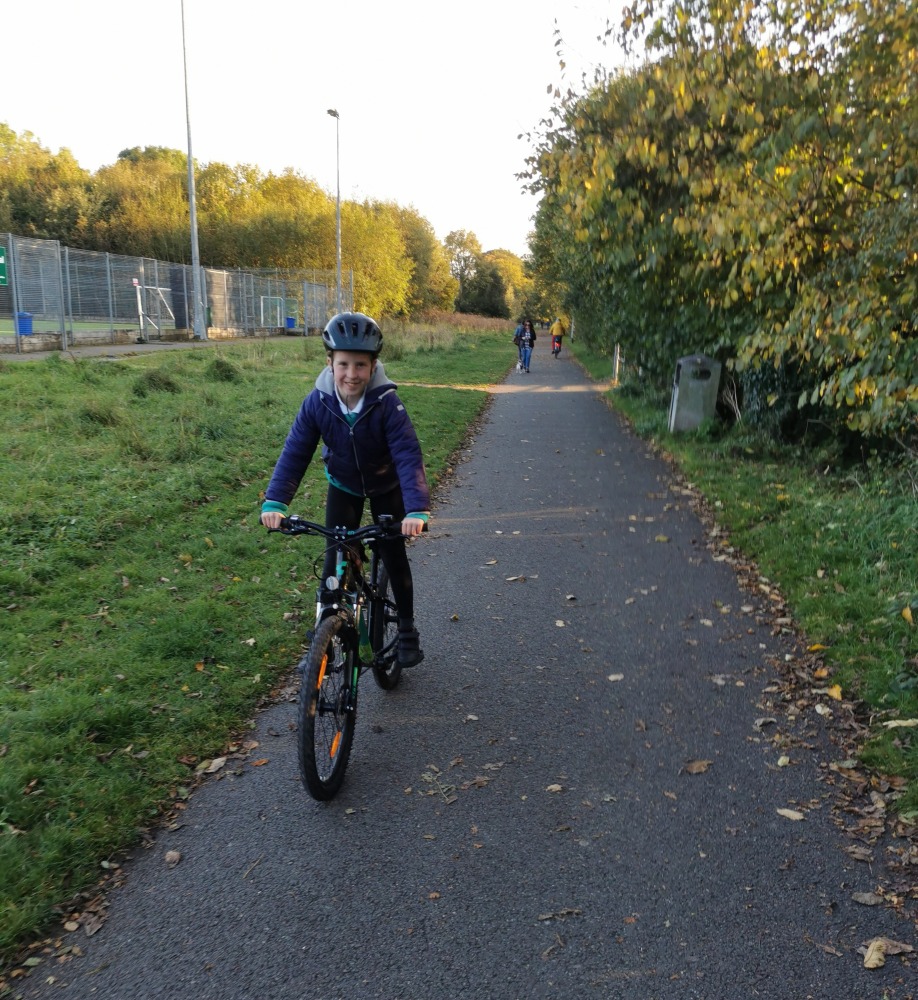
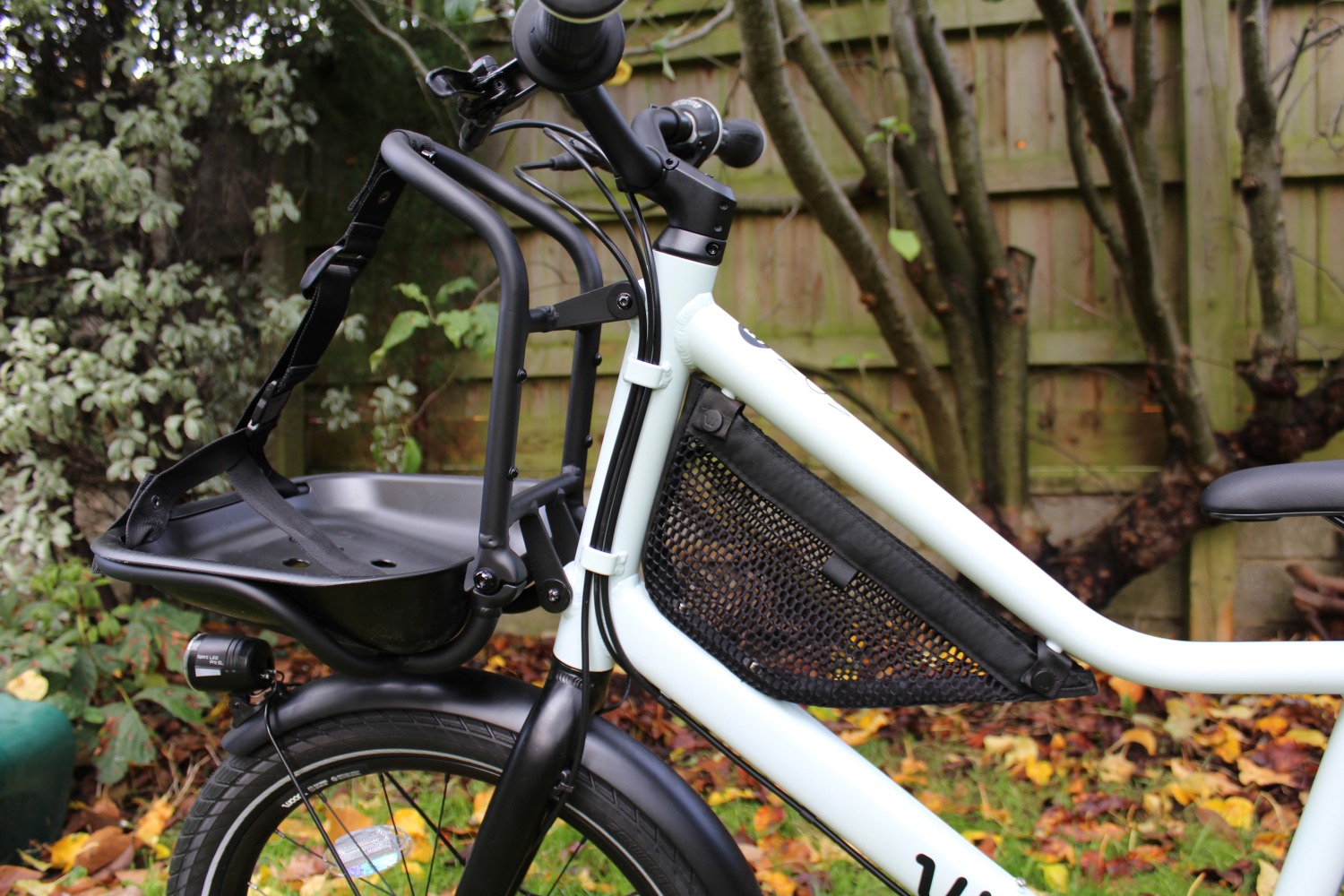
Carrying school bags by bike
With nursery and school come bookbags, sports kits, musical instruments, lunch bags, and all the other things that they need to take to school. Have you thought about how to carry everything?
If your route is not too hilly and your children cycle themselves, they can probably carry their own rucksack.
Panniers (bags that you clip onto the rear rack of your bike) are an amazing solution for both adult and kids bikes. You can also get double ones that are buckets that you can fill with all the bags and other things that you need to carry such as water bottles and raincoats.
Trailers usually offer some storage space. Bike seats obviously don’t come with any storage space and you might struggle to fit a rucksack in between you and your child. Putting panniers under a rear bike seat is also a challenge, if possible at all.
A front basket might be a good option if you’re using bike seats.
Plan for wet and cold weather
It might rain or get cold on your bike to school. If you’re going to be cycling in all weathers, you’ll have to be prepared with waterproof coats, waterproof trousers and gloves. Here’s our guide to the best kids’ packable waterproof cycling jackets that keep them dry and pack down small enough to be stowed in a bag or pocket. We’ve also got a great guide to the best kids’ cycling gloves to protect their hands.
Smaller children get colder quicker, especially if they are exposed to the elements in a bike seat or on a cargo bike.
There are plenty of options out there to keep them warm though.
Make cycling to school fun
It’s much easier said than done, but if you can keep a positive attitude whilst you’re preparing for this change in the school run, it will be MUCH easier.
You may be feeling apprehensive, but if you download our free ‘Cycle to School’ guide we’ll take you through how to prepare fully, including test riding your route, getting ready the night before, and acing it on the first morning.
Remember you’re turning what is usually a dreary morning ritual into something really exciting for your family, so be prepared for a lot of excitement!
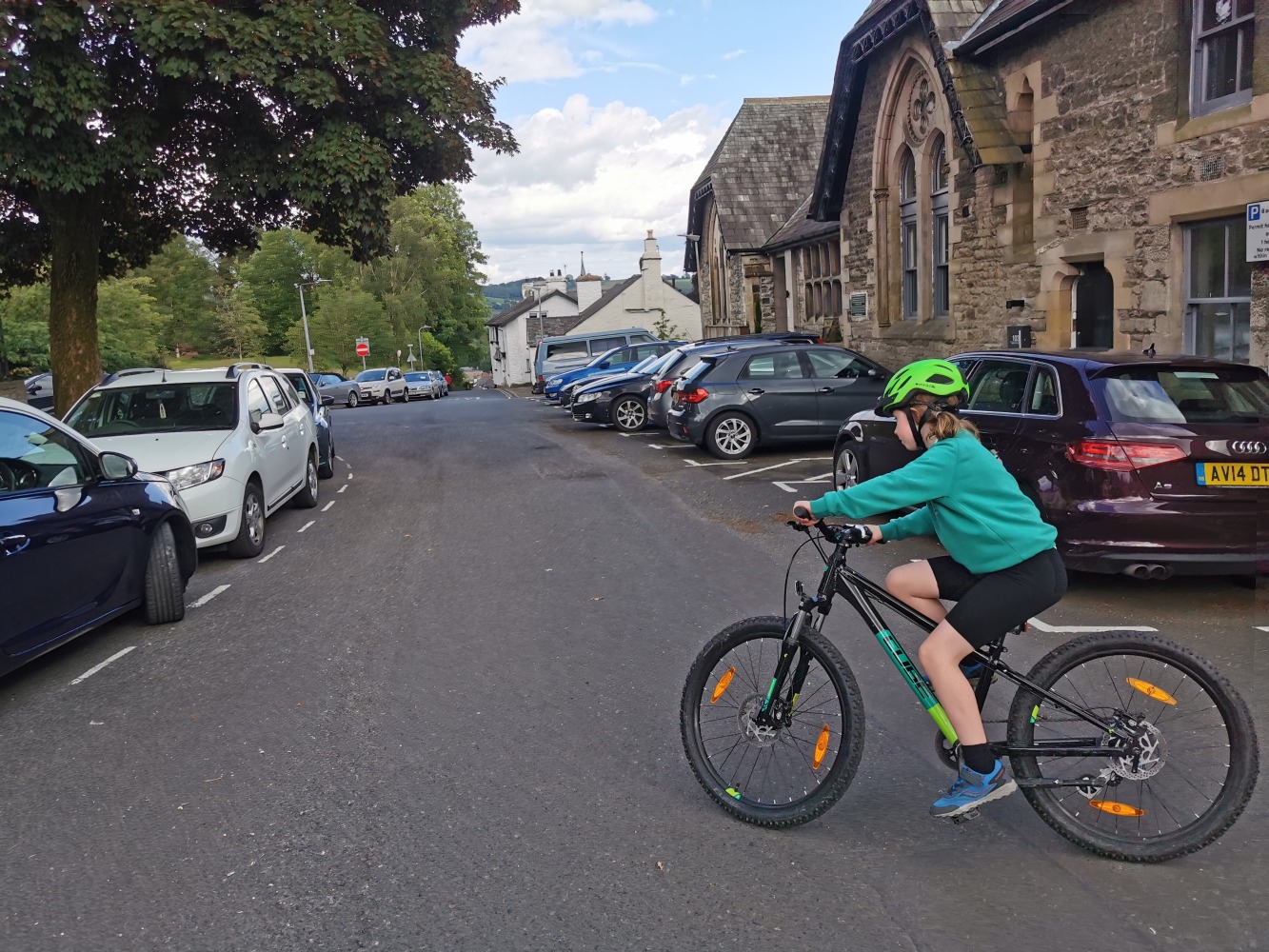
How do I prepare for cycling my kids to school?
Now you know the basics, you need to go away and think about what suits your family best.
Then comes the fun bit! You need to start to design your perfect school run set up!
Read up on all the links in this article, and browse Cycle Sprog to understand more about the various options.
Speak to other parents who already cycle - they may even let you have a go on their particular set up.
We also recommend joining the Family Cycling UK Facebook Group to get loads of inspiration from other parents who have already made the switch.
Only you can decide what will work for you, practically and budget wise.
When you're sorted with the hardware you need to make sure you're ready mentally and emotionally, which is where our free ‘Cycle to School’ guide comes in.
Then you're ready to cycle the school run for the very first time!
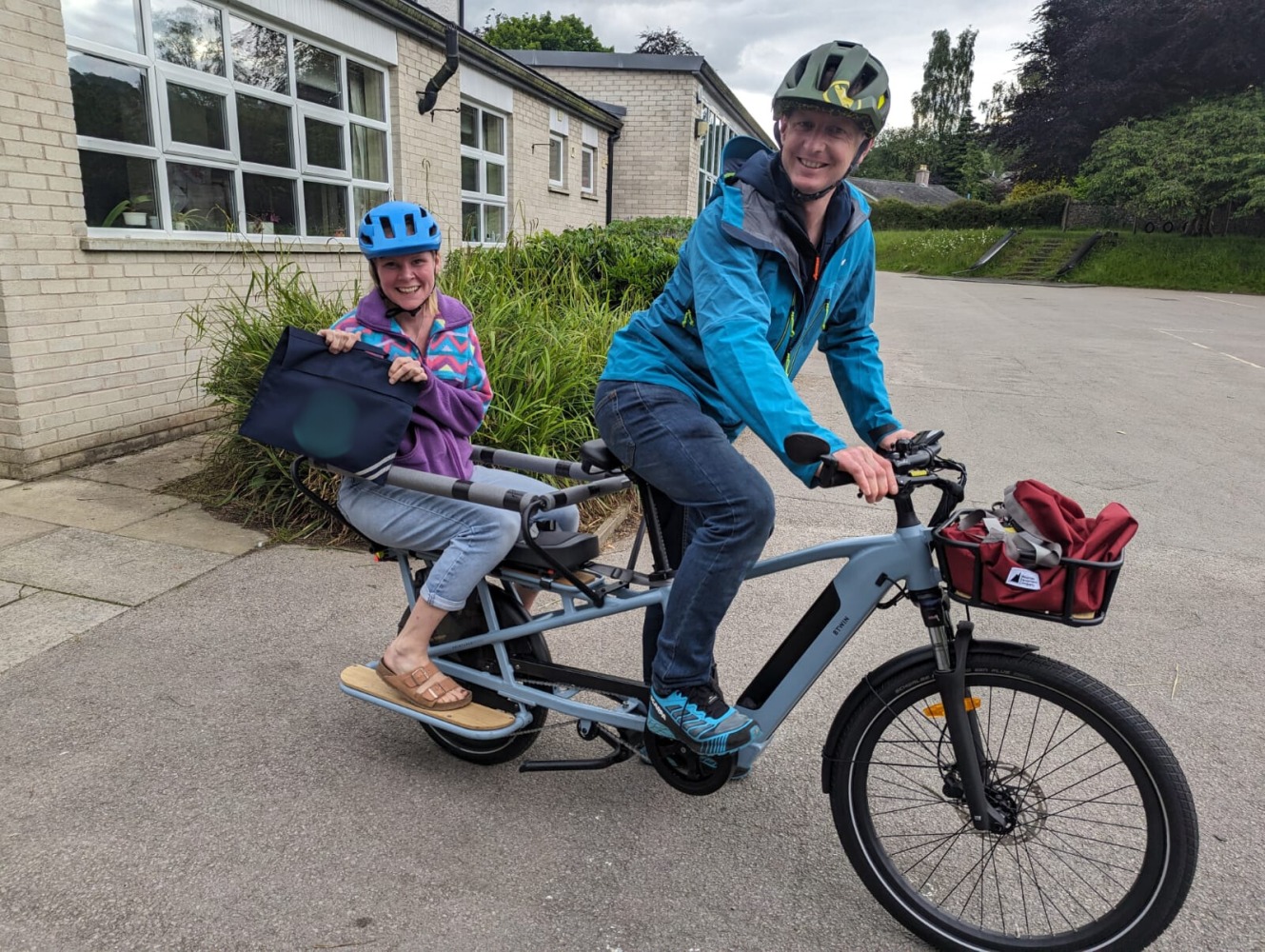
Other articles you might be interested in:
- How to start cycling with a small child in a bike seat, cargo bike or trailer
- Getting ready to teach your child to ride a bike
- What's the best age to teach a child to ride a bike?
- 2 vs 3 wheeled cargo bikes; which is best for carrying kids?
- Kids cycling to school shouldn't be rocket science
- How to get more children cycling safely to your school
- How to clean a kids bike
- How to stop your kid getting saddle sore: a guide to kids bike saddles
Cycle Sprog's most popular articles
Here at Cycle Sprog we help thousands of families each week find the information they need about kids bikes and cycling together as a family.
We've got hundreds of articles on the website, and we do hope you enjoy browsing them, but if you're in a hurry these are our most popular articles that will get you started.
Winter cycling adventures await!
The temperatures have dropped and the mornings are frosty, but that doesn’t mean family cycling has to go into hibernation. With cosy layers, dependable lights and a bit of forward planning, you can keep riding right through the winter months.
We’ve gathered our best tips and trusted gear recommendations to help you stay warm, dry and visible on every ride — from icy school runs and festive weekend outings to energetic laps at the local park. Winter cycling can be brilliant fun, and we’re here to help you make the most of it!
Our latest articles
Here at Cycle Sprog we're always publishing brilliant new articles, and here's a selection of our newest releases.
The best way to keep up to date with all the latest news, reviews, advice and routes is to sign up for our weekly newsletter.
-
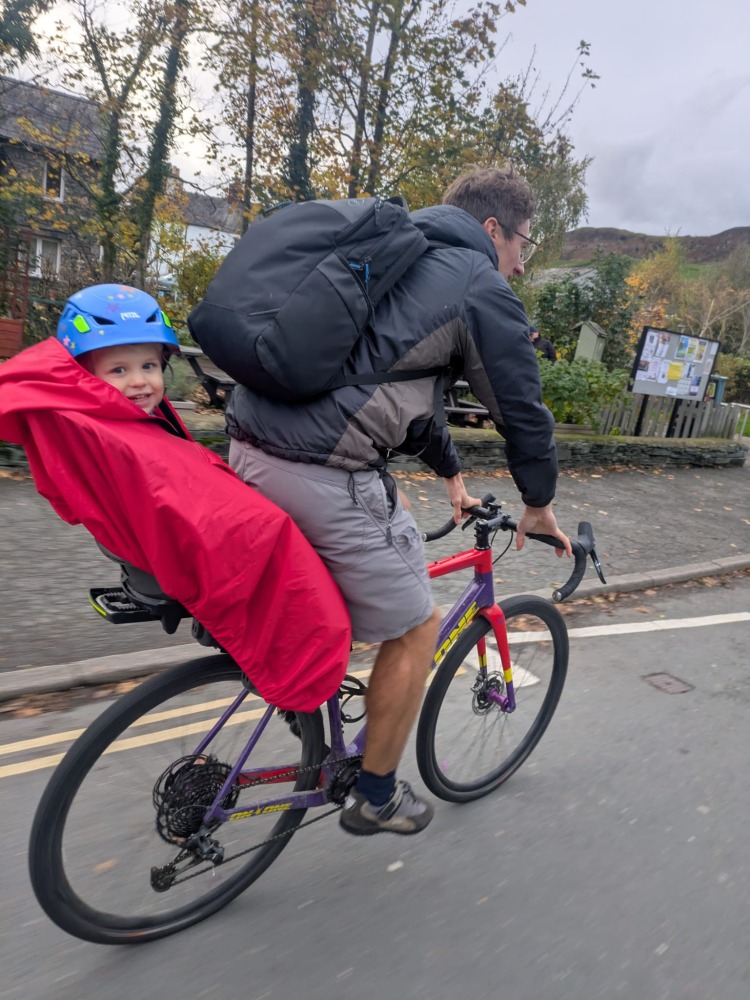 Hamax Bike Seat Rain Poncho Review
Hamax Bike Seat Rain Poncho Review
-
 SPARKY Kids helmet review: Smart safety made fun
SPARKY Kids helmet review: Smart safety made fun
-
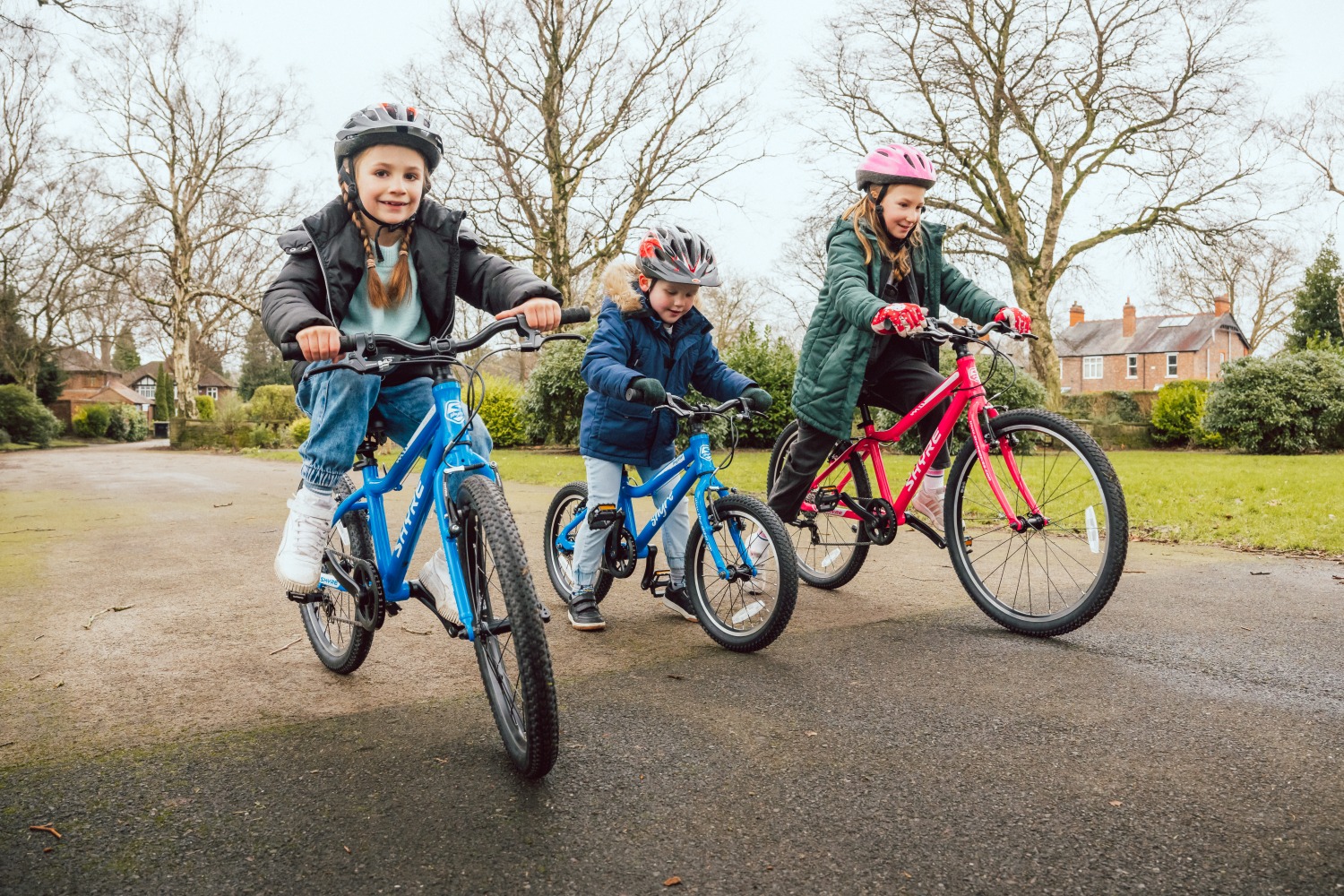 Shyre Bikes range overview: a new kids bike brand built for adventure
Shyre Bikes range overview: a new kids bike brand built for adventure
-
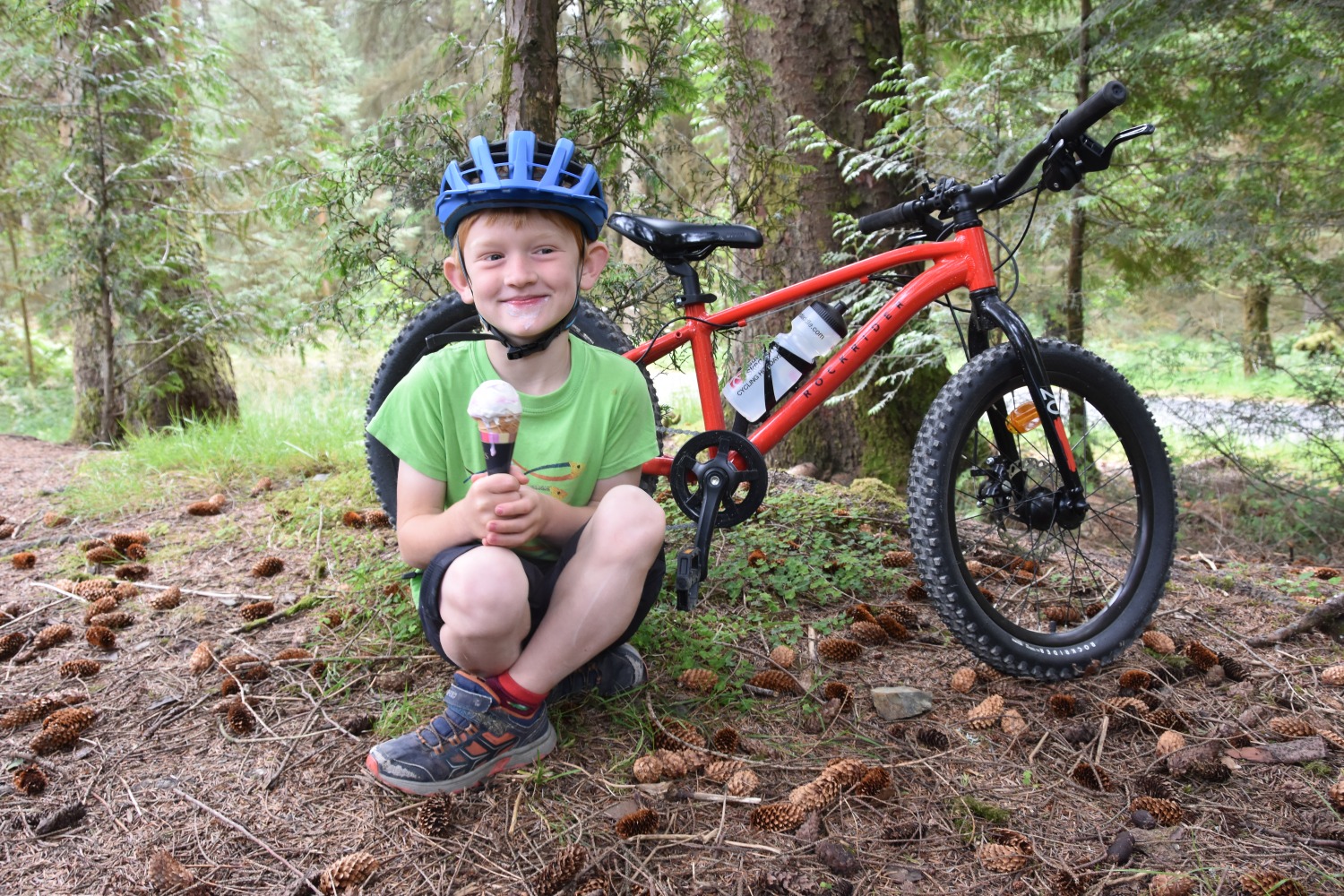 BTWIN 20” EXPL 900R review: Budget kids mountain bike
BTWIN 20” EXPL 900R review: Budget kids mountain bike
-
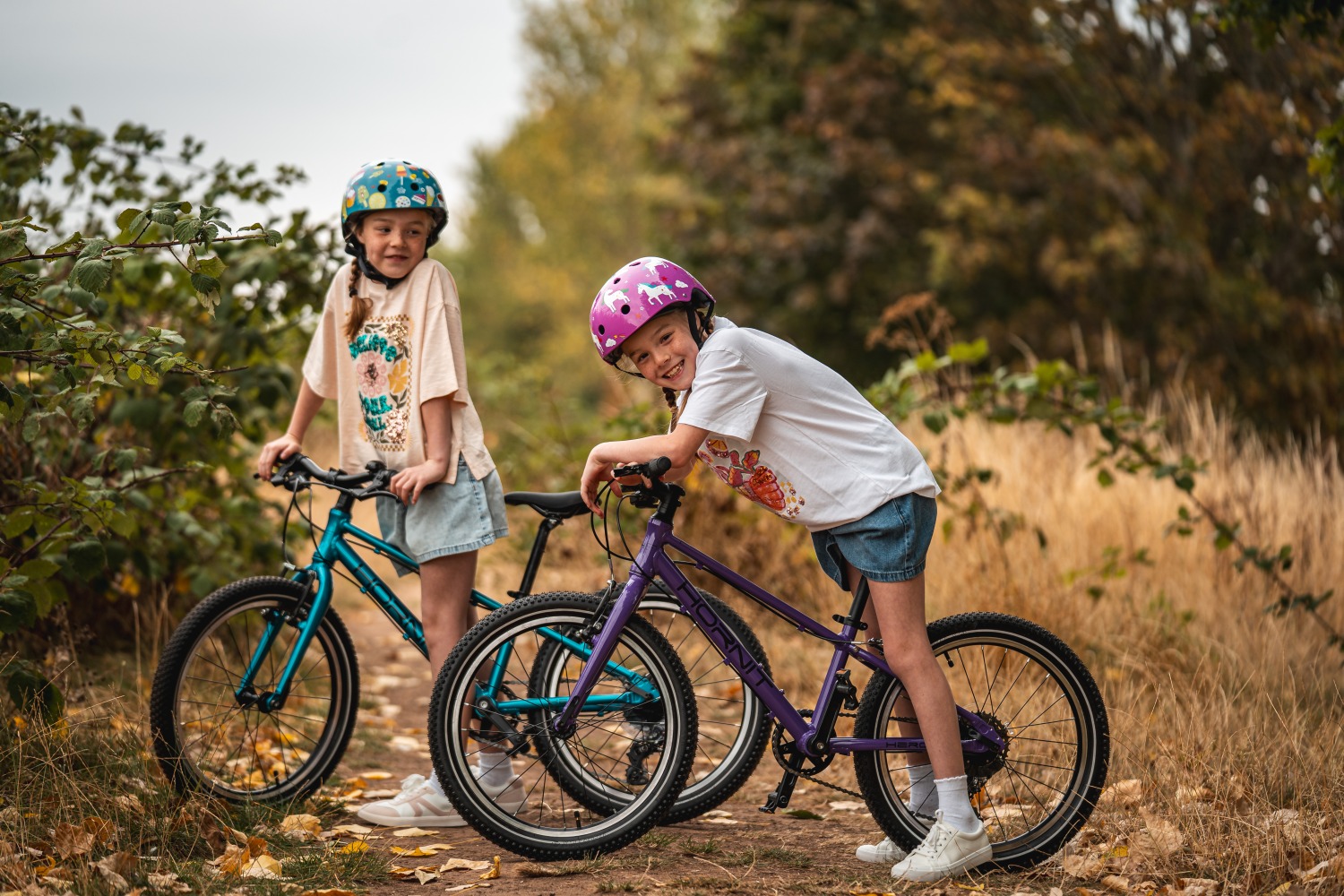 Hornit Bikes brand overview: incredibly well-designed and lightweight kids bikes
Hornit Bikes brand overview: incredibly well-designed and lightweight kids bikes
-
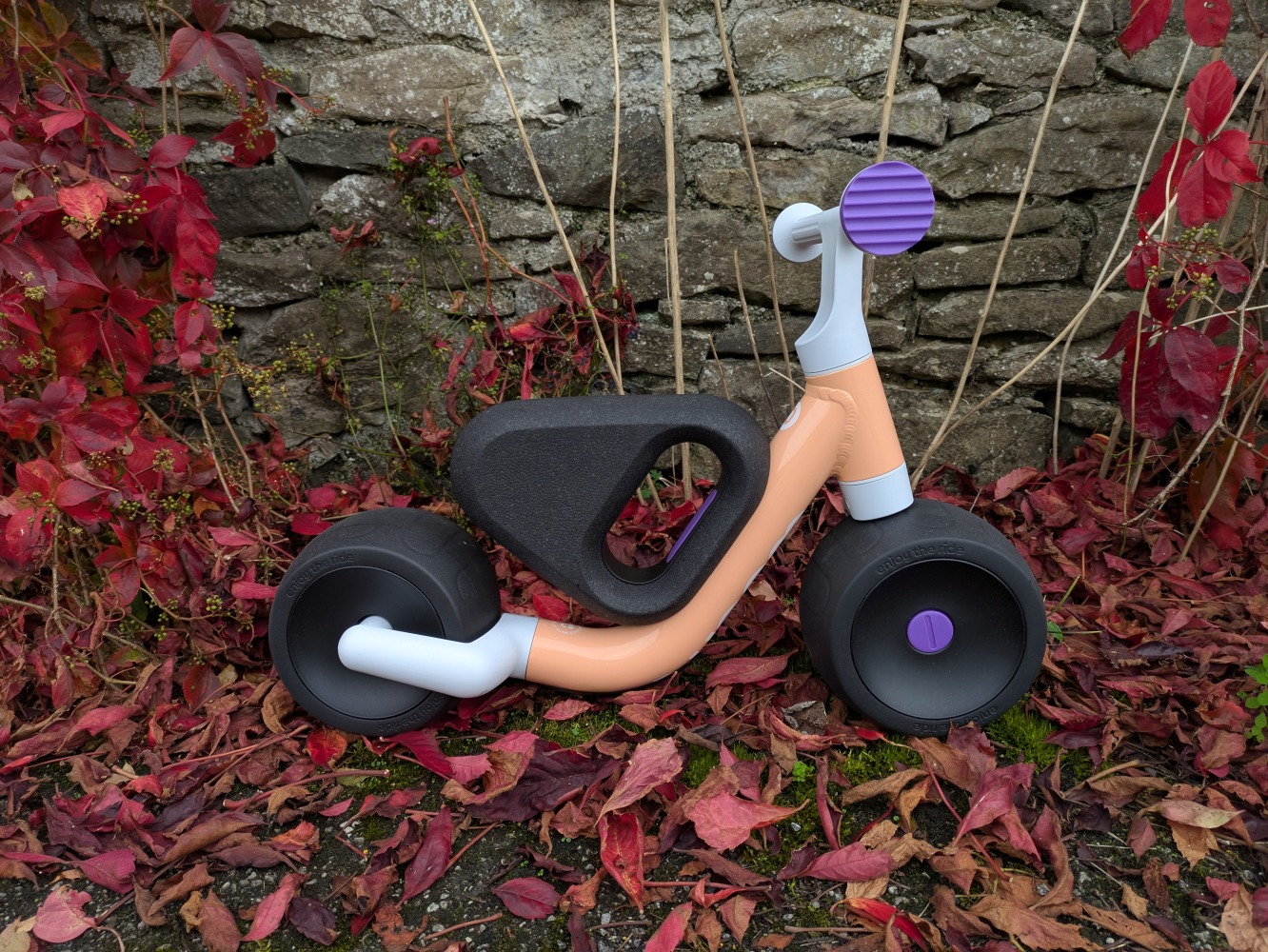 woom WOW first impressions review: the perfect introduction to cycling for your baby!
woom WOW first impressions review: the perfect introduction to cycling for your baby!
-
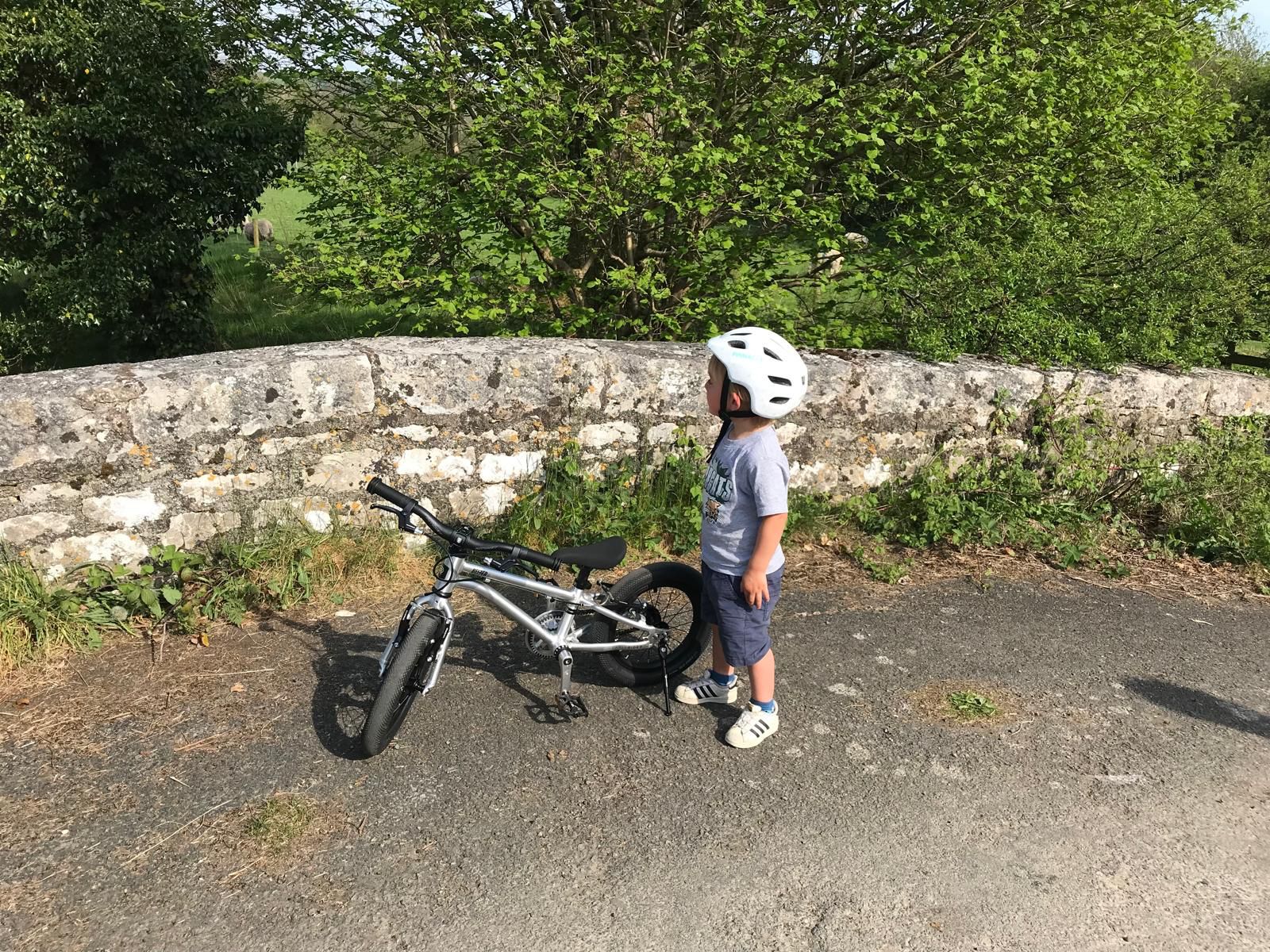 Early Rider Belter 14 review: A premium first pedal bike to inspire little cyclists
Early Rider Belter 14 review: A premium first pedal bike to inspire little cyclists
-
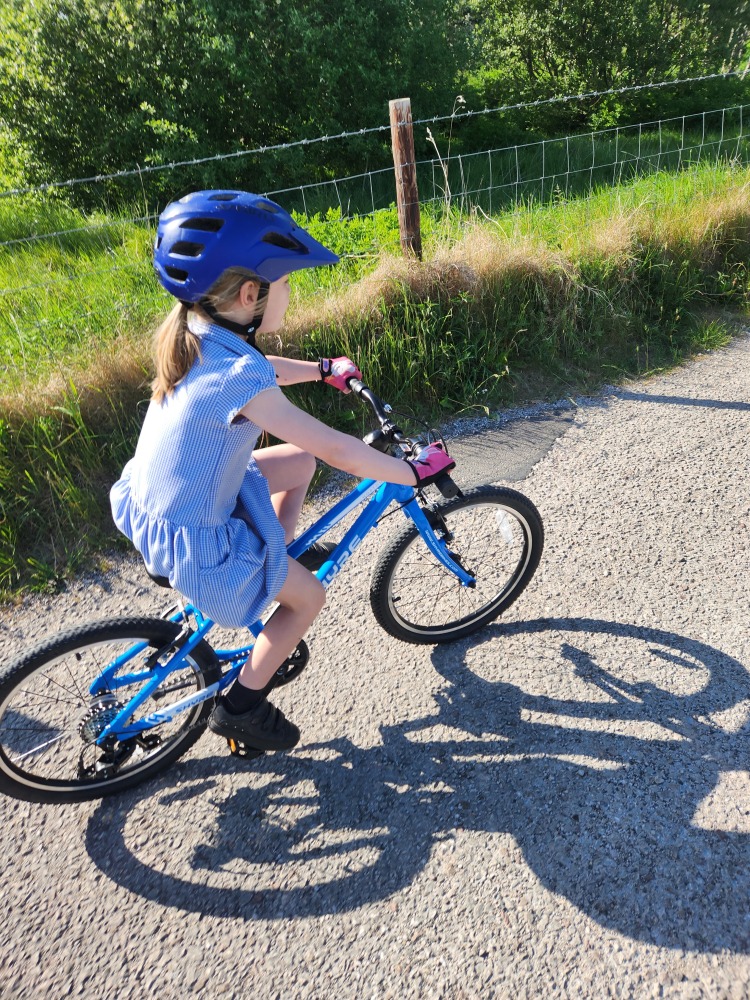 How to teach your child to ride a bike
How to teach your child to ride a bike
-
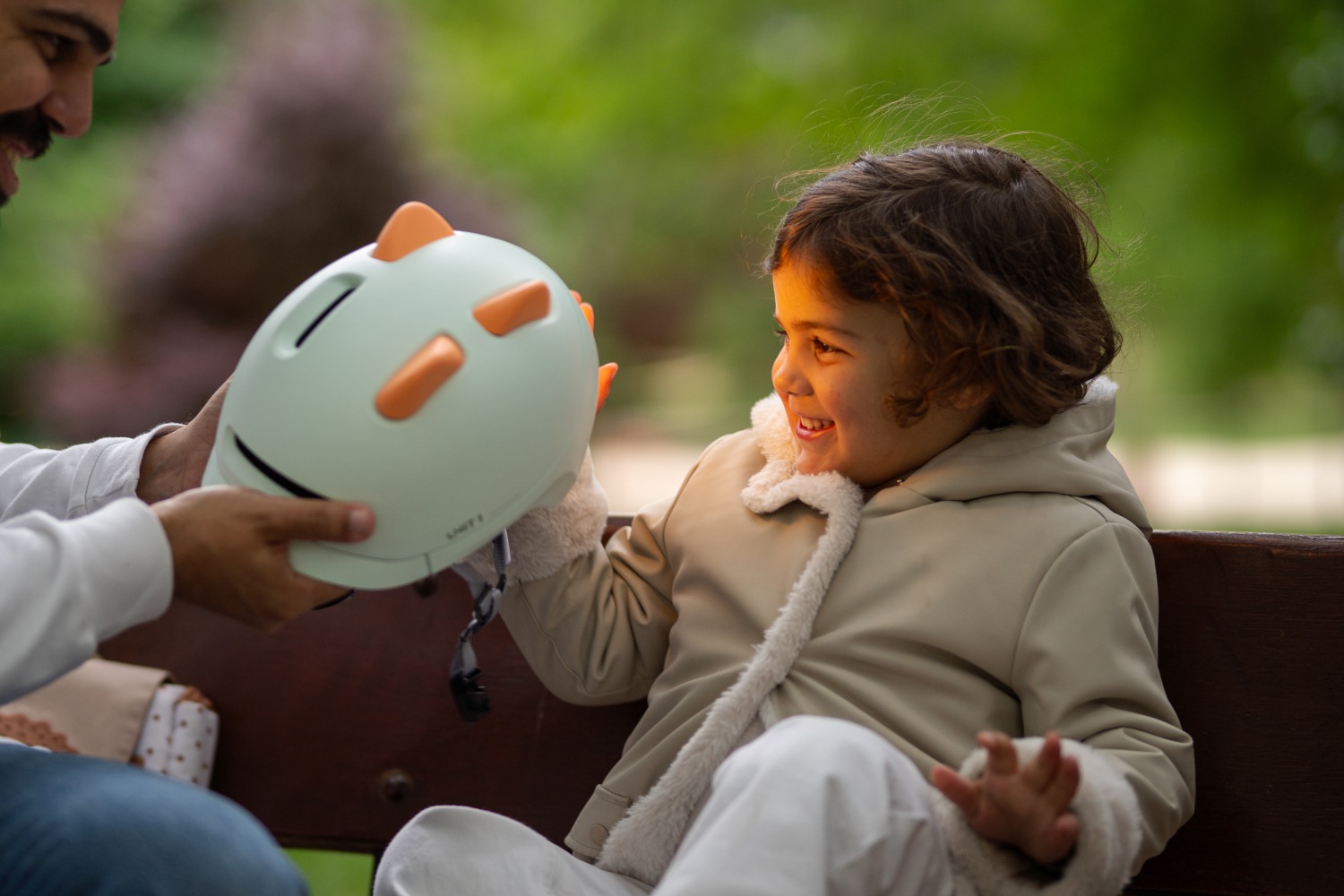 SPARKY kids helmet: making safety fun, one ride at a time
SPARKY kids helmet: making safety fun, one ride at a time
-
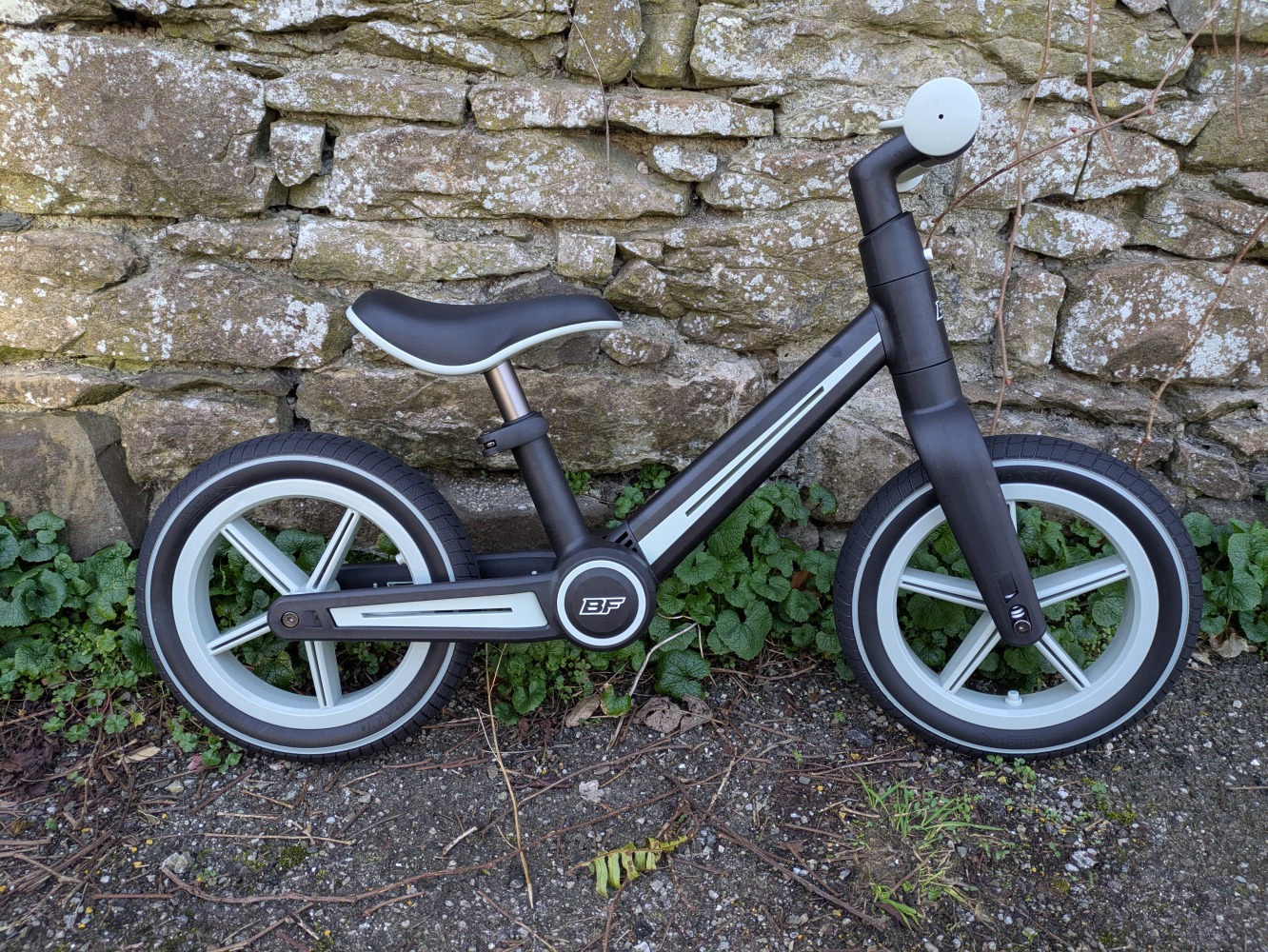 Be Fun Wheels review: A folding balance bike!
Be Fun Wheels review: A folding balance bike!
-
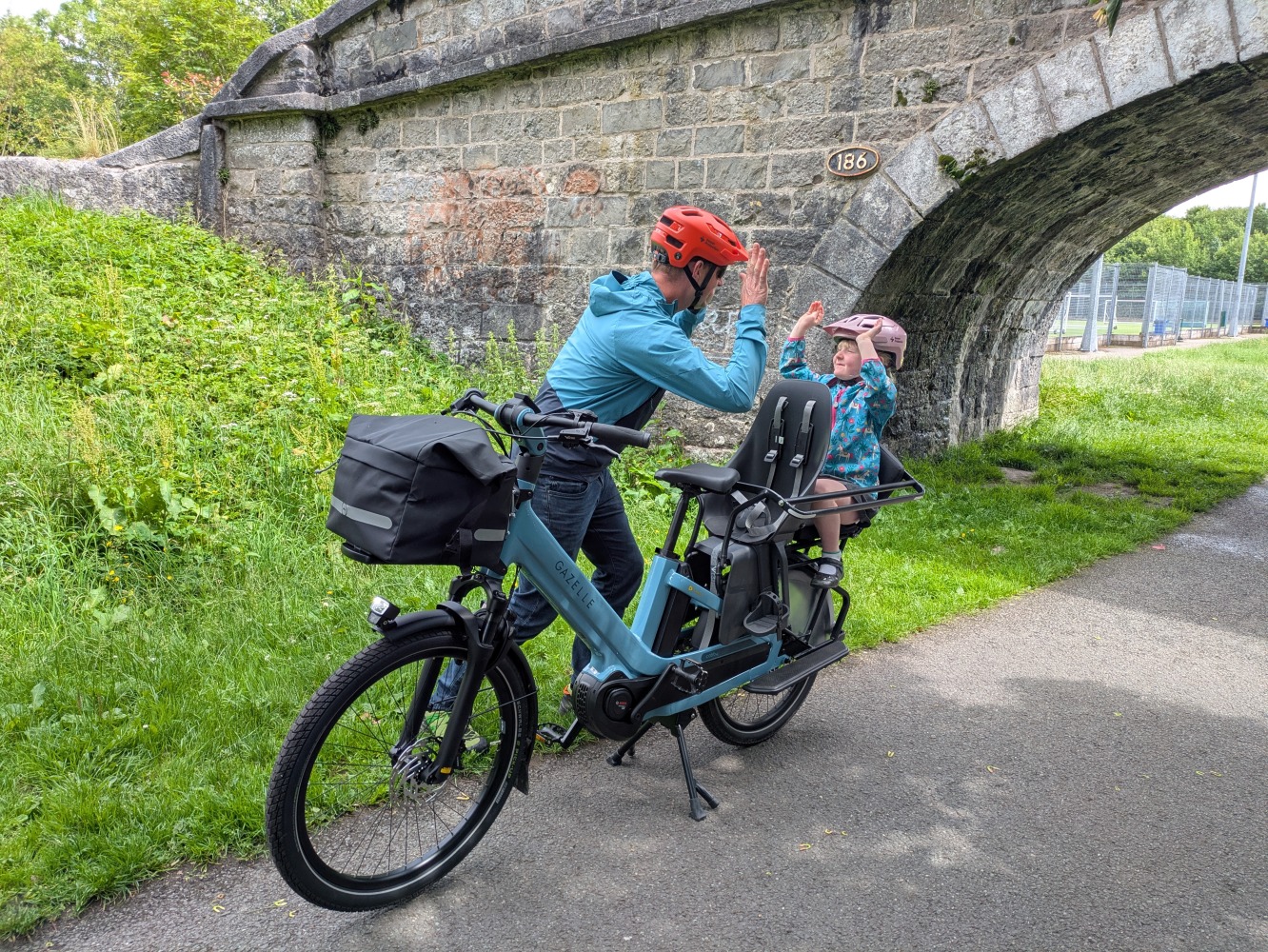 Gazelle Cabby Longtail Cargo Bike Review
Gazelle Cabby Longtail Cargo Bike Review
-
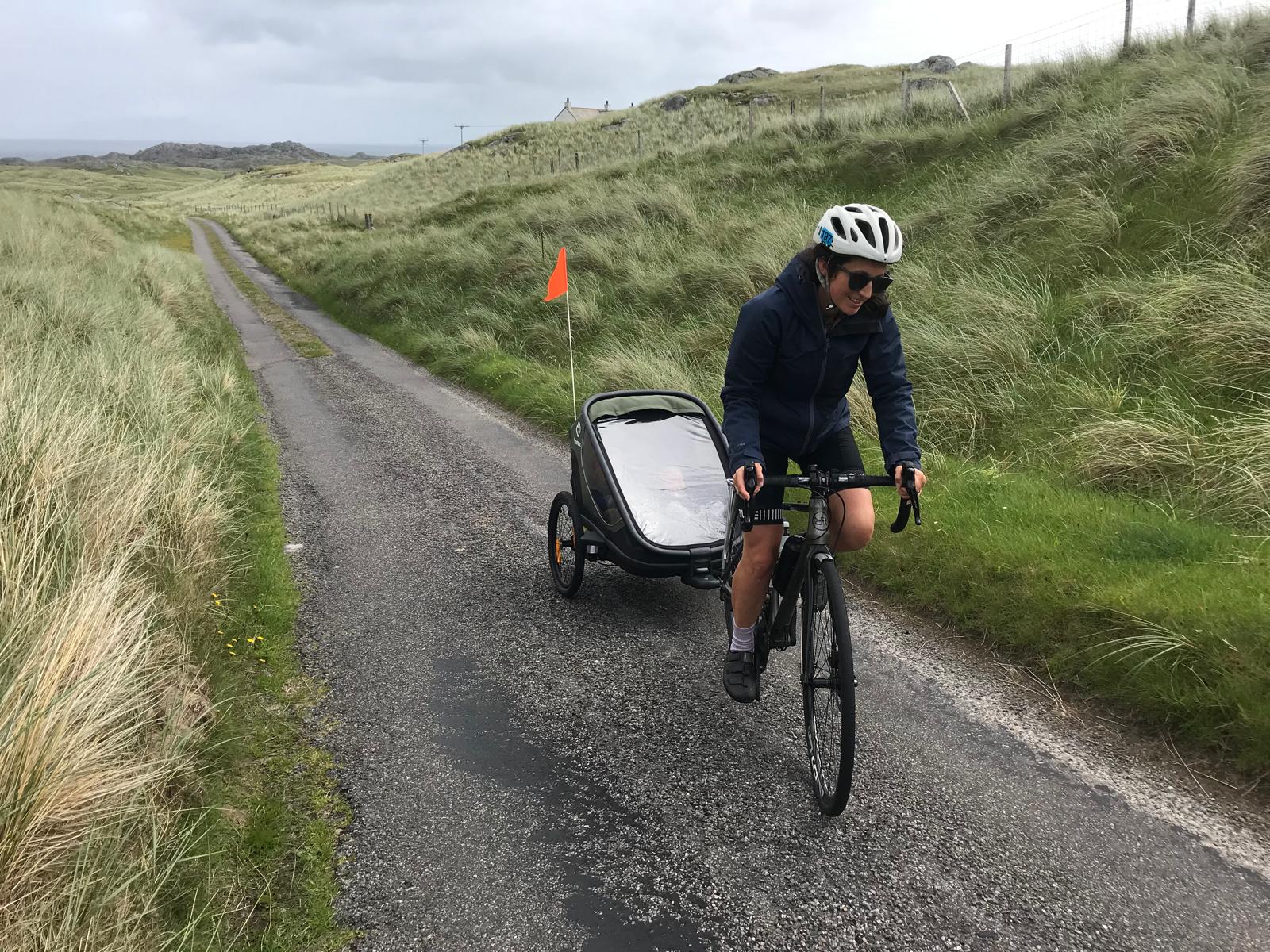 Hamax Outback Double Trailer Review: is this the best twin bike trailer?
Hamax Outback Double Trailer Review: is this the best twin bike trailer?
-
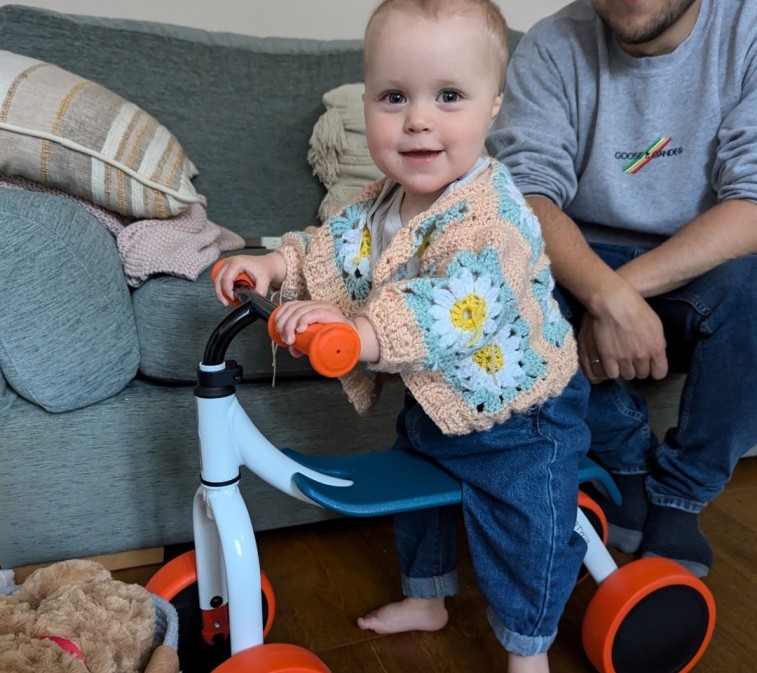 Btwin Convertible 2-in-1 Ride-On to Balance Bike review: A great option for a 1 year old?
Btwin Convertible 2-in-1 Ride-On to Balance Bike review: A great option for a 1 year old?
If your children are not old enough to cycle on their own bikes, check out our guidance on how to carry a child on your bike.
The best ways to transport your kids by bike are:
- Front bike seats - for babies and toddlers
- Front seats on top tube - for 2/3 to 5 years old
- Rear bike seats - for babies to 5 year old
- Trailers - for babies to around 6 years old
- Cargo bikes - for babies to teens
Bike seats or a trailer are the least expensive options, especially if you’ve already got a bike.
There are also options to pull a slightly older child behind your bike, using a tagalong or followme tandem.
Get the bikes ready
You are nearly ready to go out for a trial school run! Are all the bikes in working order?
What about the trailer or seats, are they installed and are you comfortable using them? Here's some help on how to get started with cycling while carrying your child on your bike.
What else do you need to think about?
There are other things to think about such as where will you store the bikes or trailer? Do you want to leave them at nursery or school. Is this possible and do you need bike locks?
What about the nursery or school pick up? Will someone else need the bike seat or trailer, if you’re not doing pick up?
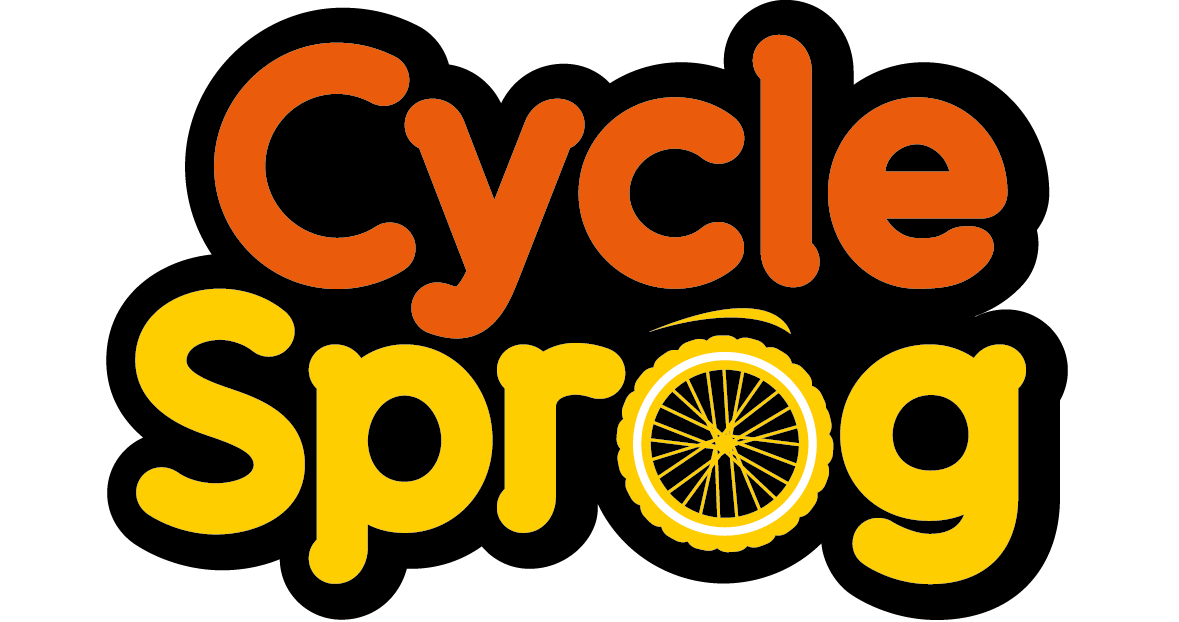

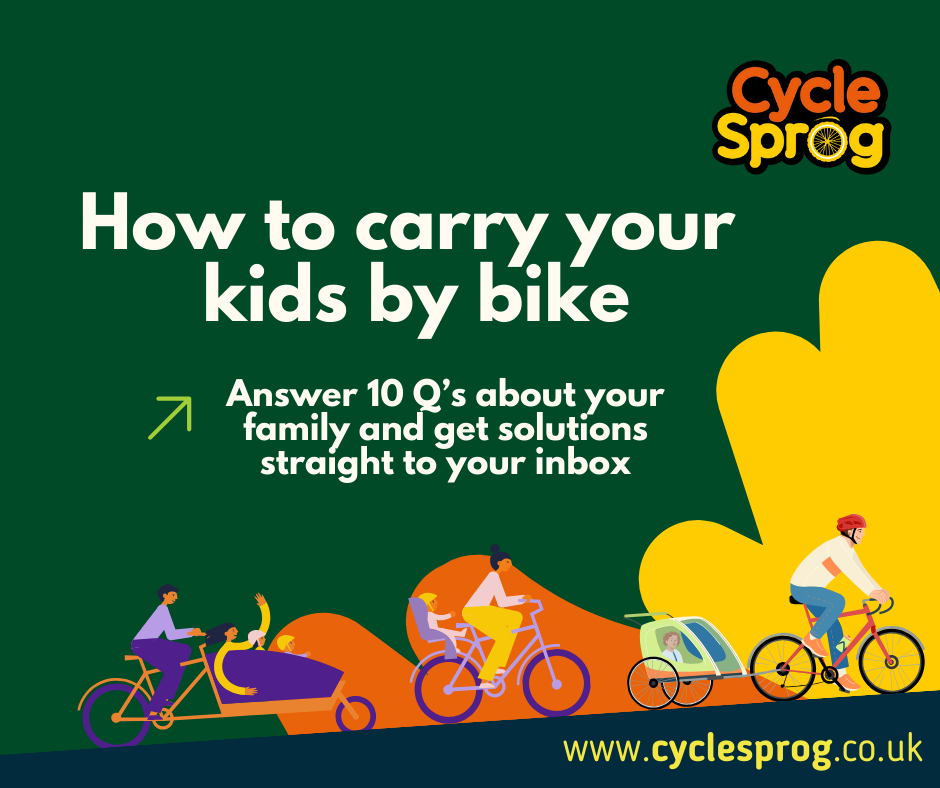
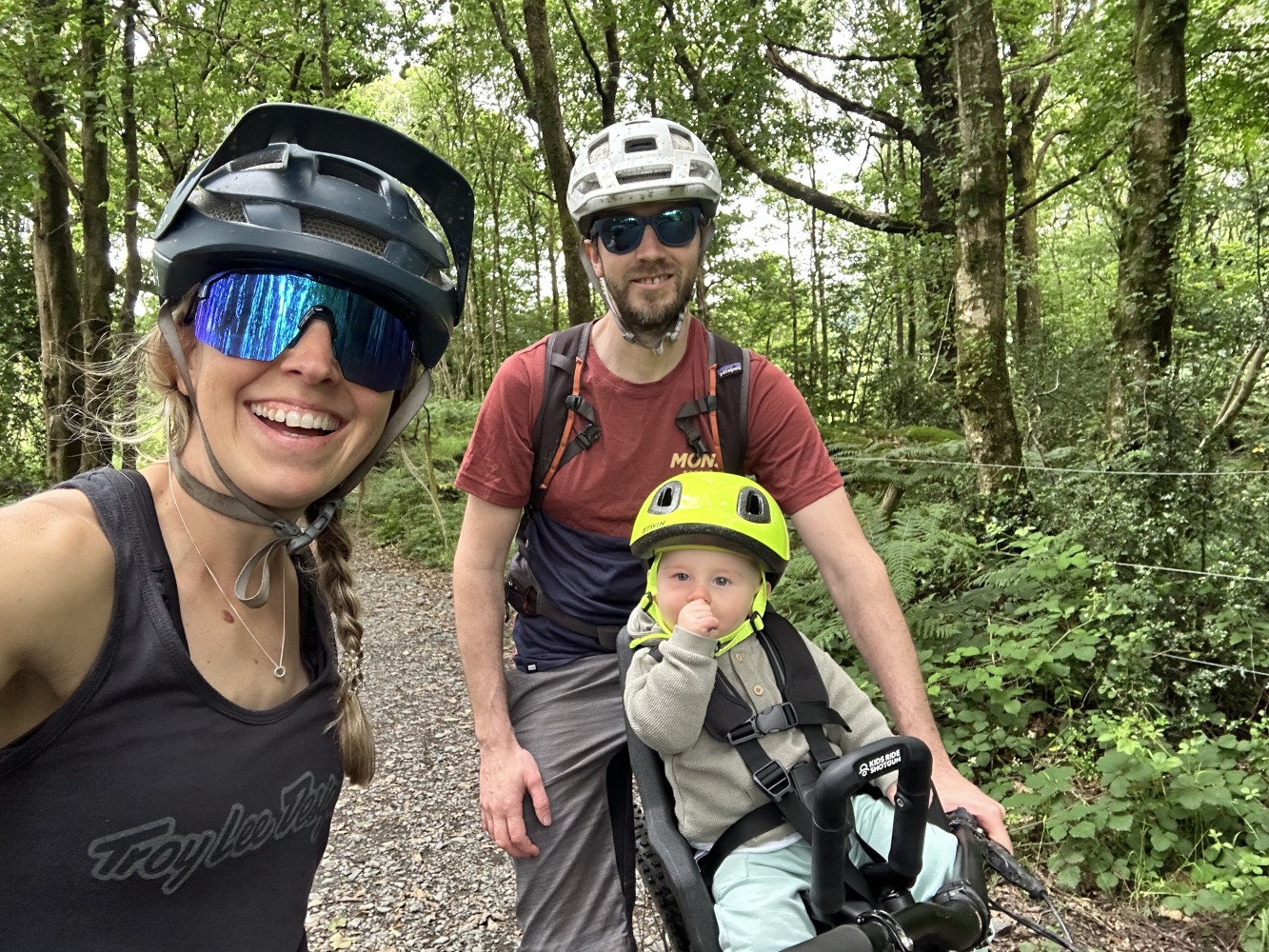
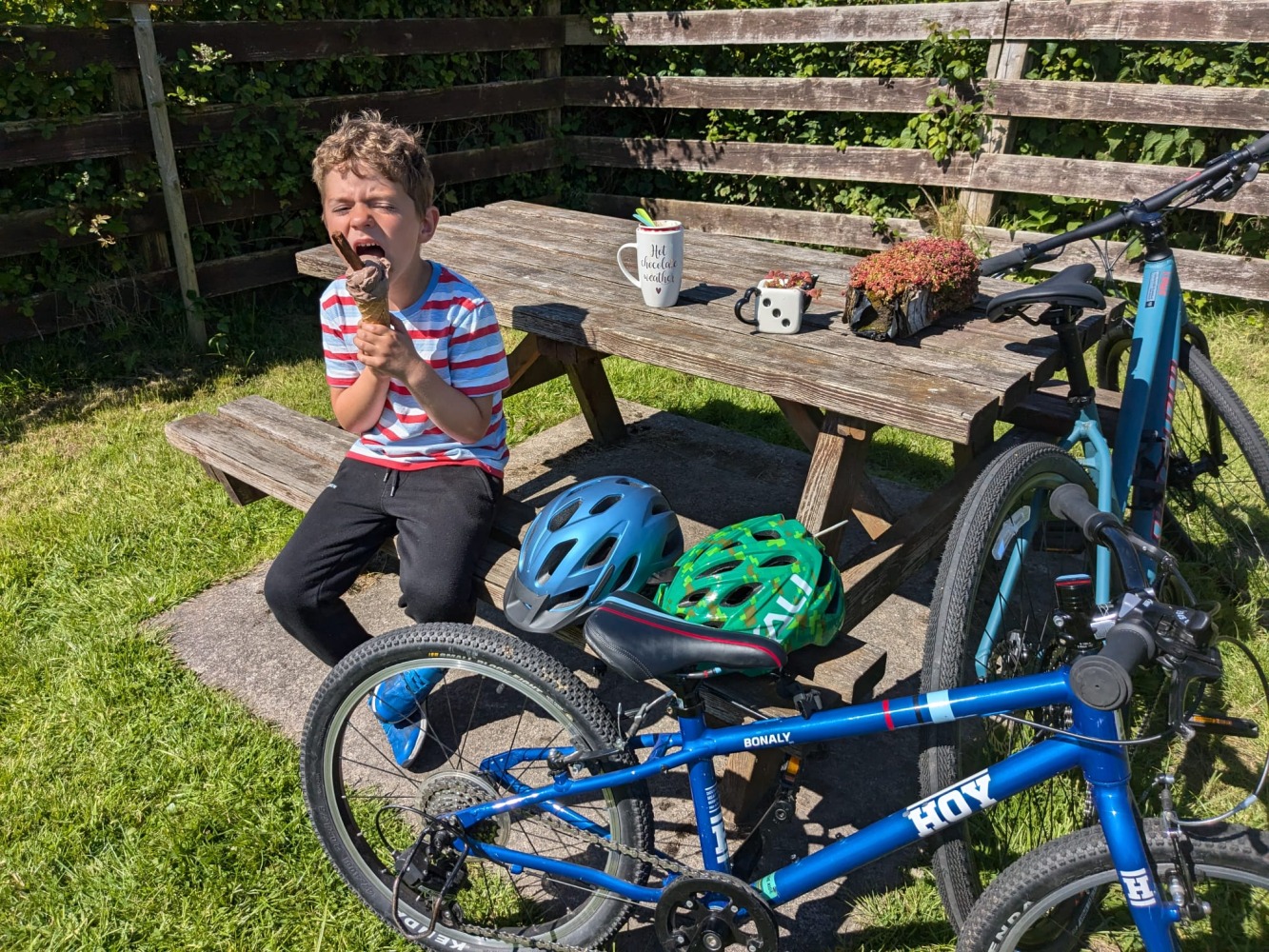

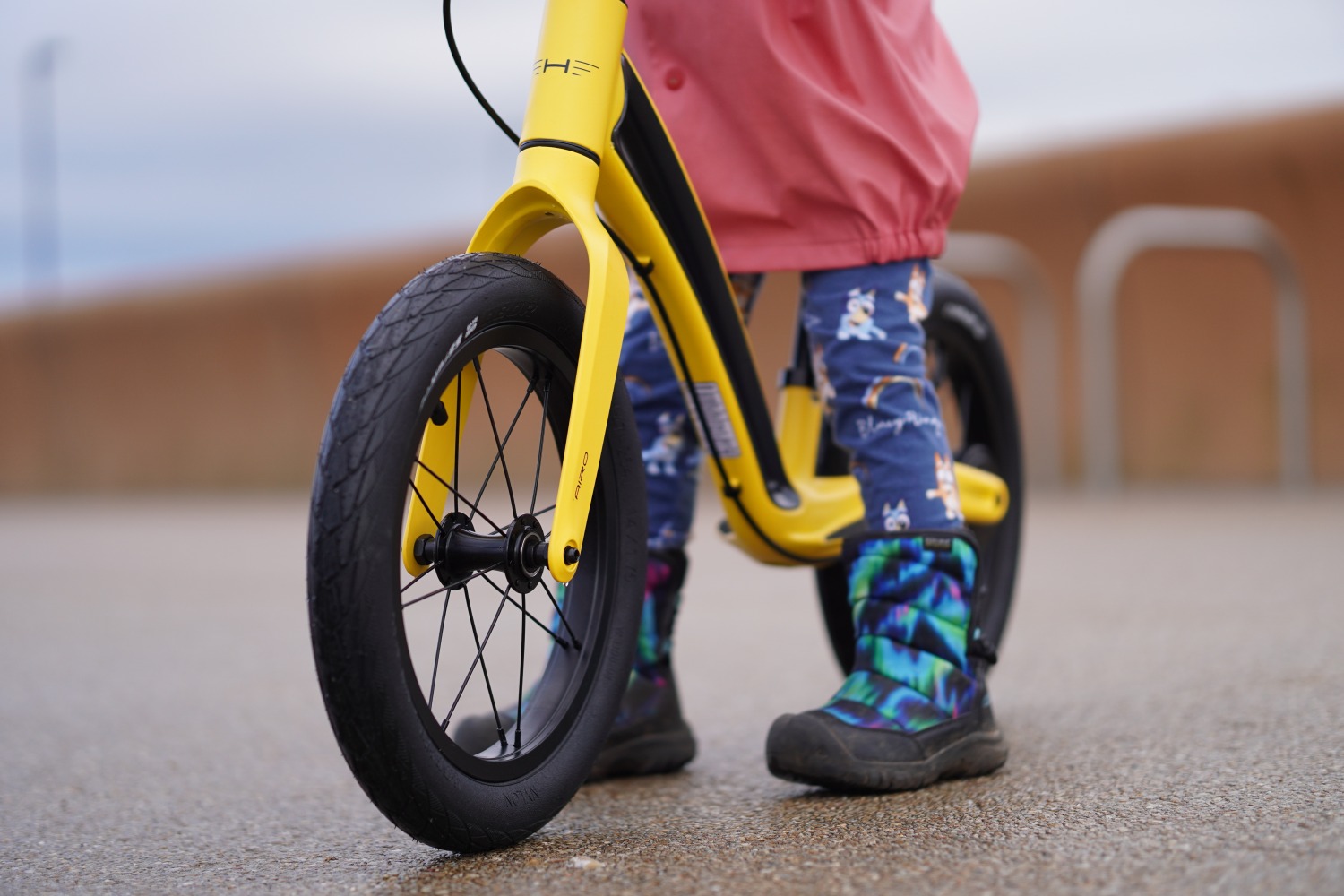
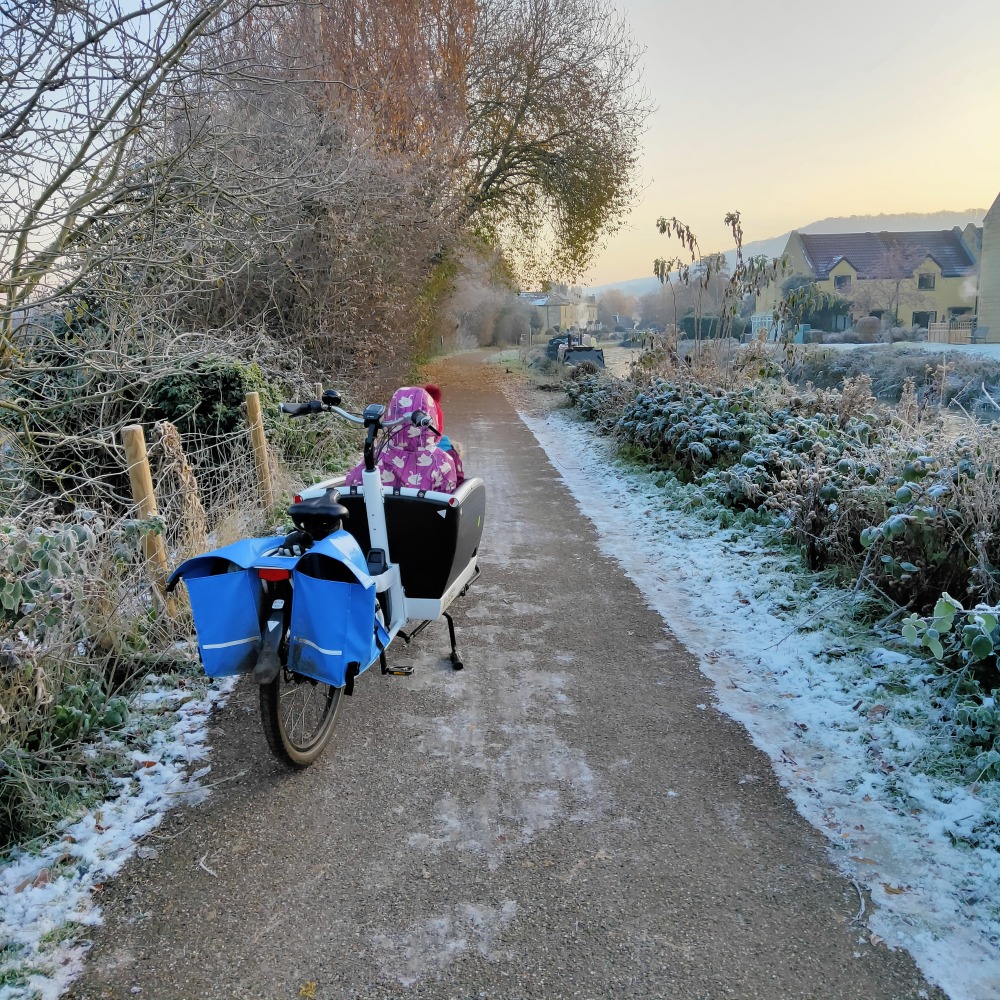
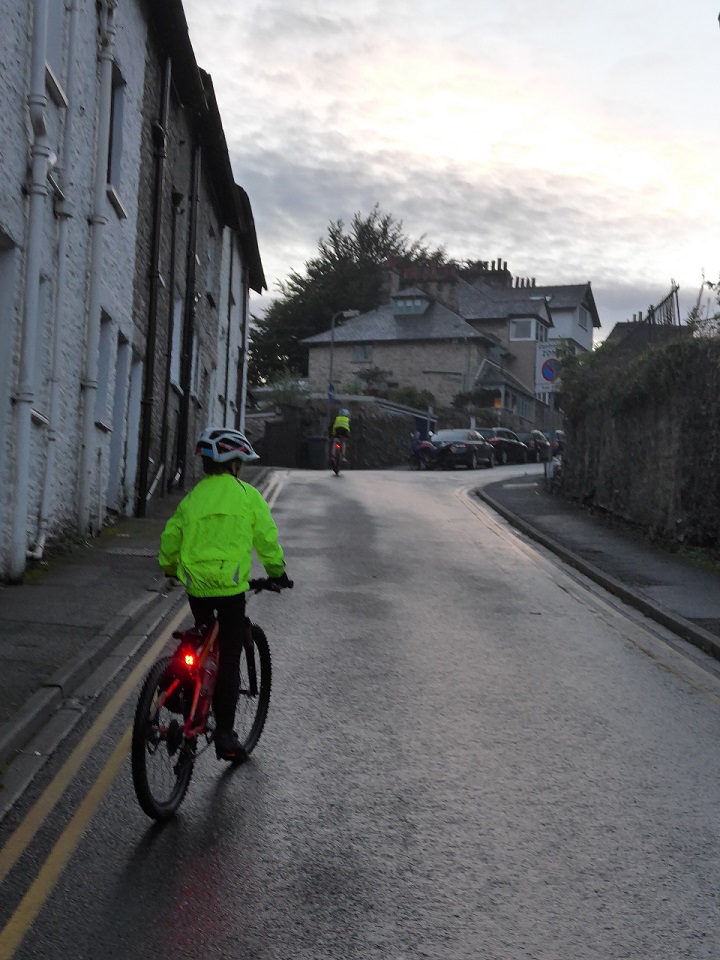
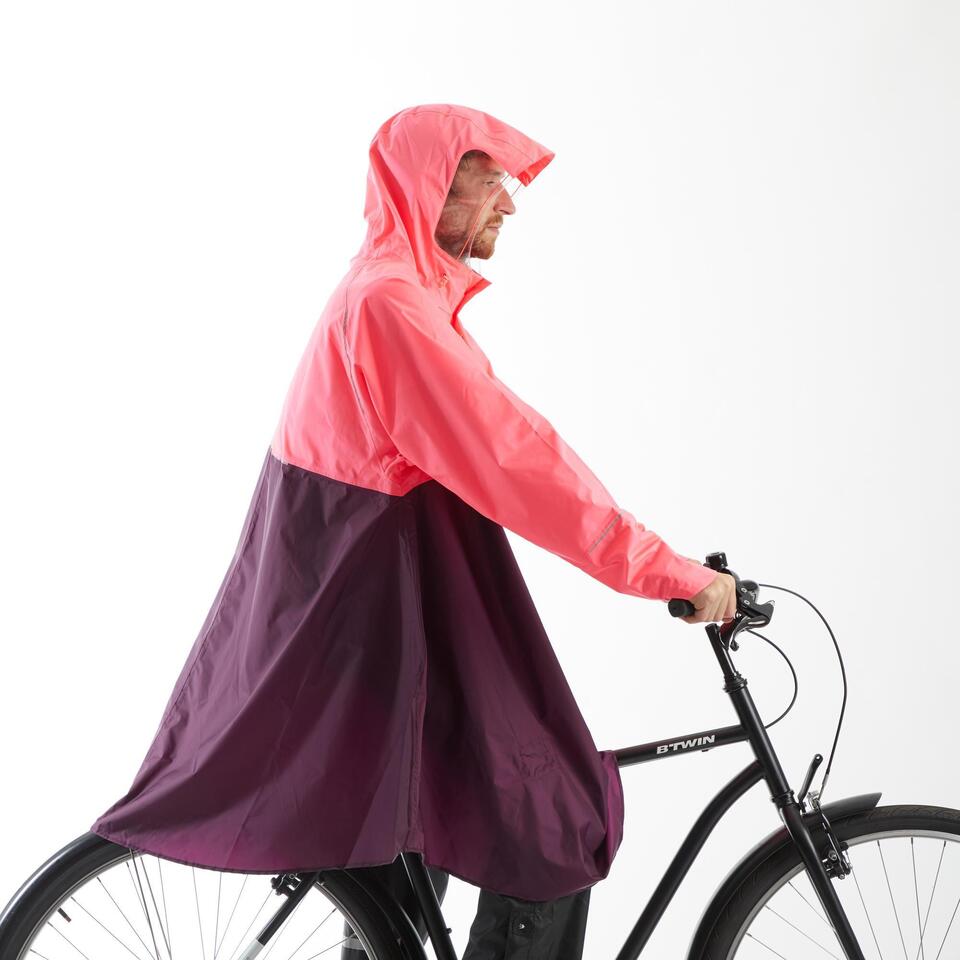
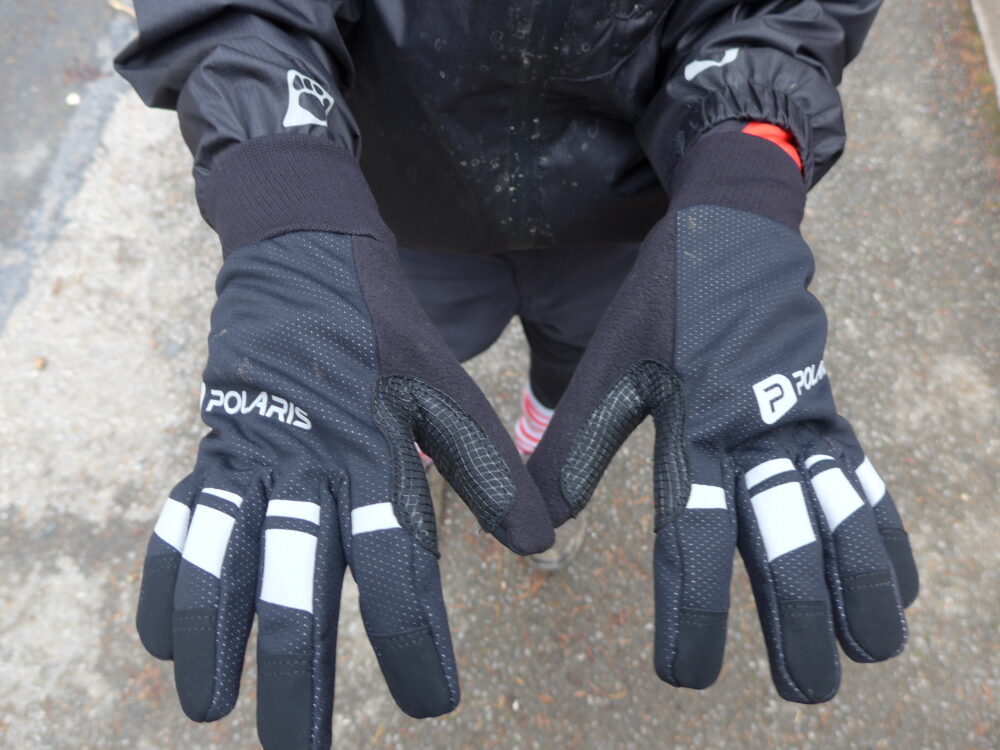
Comments